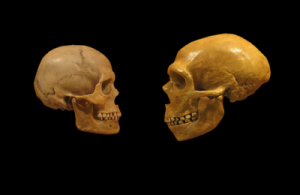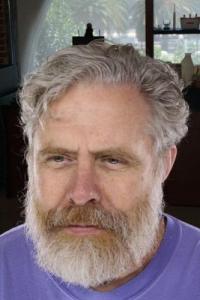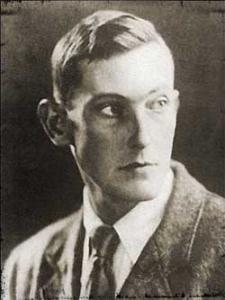On science blogs UPDATED FOR #SCIO13: Hey, kids! Let's clone a Denisovan!
HEY, KIDS! LET'S CLONE A NEANDERTHAL! I must, I guess, write about Neandertal/Neanderthal cloning. Everybody's doing it, so who am I to resist? You probably know already — how could you not? — that high-profile Harvard geneticist George Church spoke about the technical possibilities for raising the long-dead in a book-promoting interview with Der Spiegel. Whereupon other media of the lower sort proclaimed that Church was seeking rentable wombs for his Neandertal embryos.
Not true, of course, and some coverage explained what he really did say. Knight Science Journalism Tracker Faye Flam's comprehensive post summed up the original interview and subsequent coverage good and bad.
I'm pleased to report that the science blogs I've seen were in corrective mode as well. What is surprising and a little scary to me is that an appreciable number of science bloggers, while averring that Church was engaging in technical speculation rather than advocating embryo tech, also appear to think Neandertal cloning is a pretty intriguing idea. This was epitomized pithily by Susan Young at Tech Review, who urged an open discussion of Neandertal cloning.
Which is exactly what seems to be happening. For example, bioethicist Art Caplan, an old friend and colleague, weighed in with the usual ethical objections to cloning — for example that it would probably be unsafe and definitely be cruel.
WHY CLONE A NEANDERTHAL? What I haven't been able to figure out is Why? Just why is cloning a Neandertal a pretty intriguing idea? What purpose would it serve?
Here are a few science blogger answers:
At NeuroLogica, Steven Novello argues
What would be most interesting, in my opinion, are the cognitive differences between sapiens and neanderthalensis. This is something that does not fossilize. I think we can learn a great deal about what it means to be human by studying sentient beings who are not human. Eventually we are likely to encounter such beings from other worlds, but until then resurrecting the Neanderthal is probably our best bet.
So let me get this straight. The reason we should clone Neandertals is that they could help us practice talking to aliens?
Just in case we ever encounter any aliens?
Please.
I have cited Novello approvingly here several times, but this nutsy justification just floored me. Part of his problem, of course, is that he expects Neandertals to differ from us appreciably. Novello says they are not human. That's an all-too-common, uh, misconception, even among humans who should know better.
Sure, sure, let's concede all the stupid hair-splitting arguments about defining a species, how do those arguments fit this case? In what sense are Neandertals not human? I suppose you might have argued the point a couple years ago, but then came the Neandertal genome. Comparisons with contemporary human genomes showed unequivocally that they mated successfully with modern humans. Which pretty much settled the species question for good.
Proclaim it from the rooftops: These matings eventually produced nearly everybody on Earth. Unless you are a native African, you are part Neandertal. Novello seems not to know that most of us are carting around not-insignificant chunks of Neandertal DNA. Nor, for that matter, that many of us also possess DNA from the mysterious Denisovans. (Which incontrovertibly makes them human too, should the question arise. Which it surely will, for example when somebody says, "Hey, if we can clone a Neandertal, why not clone a Denisovan too? And then mate them and see what we get!" I suspect we are hearing distinct echoes of, "Hey, kids, let's put on a show!")
Church's argument in the Der Spiegel interview is that cloning Neandertals (and, presumably, mating them once more to extant humans) would increase genetic diversity. Does Church have access to the genomes of a great many fossil Neandertals? He must surely know that slipping a single Neandertal genome into the gene pool would be, well, a drop in the bucket. It would have the same effect as cloning any other dead human and expecting him (or her) to diversify the human genome all by him (or her) self. Ronald Reagan, say. Gandhi. Betty Friedan. Marilyn Monroe. Attractive and sexually active as such restorations might be, how much impact could one clone have on diversity when the reproducing population numbers in the billions?
Razib Khan of Gene Expression says it would be "an incredible test of the inferences that are the bread & butter of the paleoanthropological enterprise." By which he means verifying (or not) whether we of the Holocene H. sap are quite different from our Paleolithic forebears because of our evolutionary adaptations to agriculture.
"Incredible" may indeed be the correct word. Why is it not possible to do this cross-comparison research with fossil DNA? Or even just by cross-comparisons with information from the various DNA databases? Why does it require a living, breathing Neandertal? Who would, by the way, not be truly "Neandertal" at all, since he/she would have been grown in a contemporary womb and raised (I hope!) by contemporary parents, rather than in a lab.
UPDATE Wednesday January 30. Knight Science Journalism tracker Paul Raeburn discussed this post on Monday, prompting me to add a comment expanding my explanation for why a cloned Neandertal wouldn't really be a Neandertal at all. Here's what I wrote:
Thanks for the HT. As an addendum, I'd like to emphasize something I said in my post: The project is doomed to failure because a cloned Neandertal would not be a true Neandertal.
First off, if I understand Church's speculation, the project would begin with a synthetic DNA sequence based on the Neandertal sequence Paabo and his colleagues put together from fossil adults. (To allay your imprinting fears somewhat, most imprinting of the fossil sequence would have already been accomplished in egg, sperm, and zygote that grew into the adult.)
This synthetic sequence would (presumably) be inserted into a contemporary woman's egg from which her own nuclear DNA had been removed. But her mitochondrial DNA would remain. So a resulting embryo would from the outset be only part Neandertal, genetically speaking, and even that would depend on whether a synthetic nuclear DNA sequence functioned identically to its fossil template.
And the clone would spend the next nine months in the much-discussed womb rented from a non-Neandertal. And the next couple decades with contemporary human parents (or, God forbid, as a laboratory subject.) Unless you believe that it is nuclear DNA alone that creates a person, the result would not--cannot--be a Neandertal.
In short, there are no good reasons to clone a Neandertal. Except maybe to try to prove how clever H. sap has gotten with tools. It's not just wrong ethically, as Art Caplan declared. It's absurd. The real motive behind these preposterous justifications is not unlike what George Mallory is said to have told a reporter when asked why he aimed to be the first to climb Mount Everest: "Because it's there."
And the moral of that story? Mallory died on Everest. Probably before he reached the summit.
WOO-HOO! SCIENCE ONLINE 2013 IS THIS WEEK! UPDATED!
Update Wednesday, January 30, 2013. #SCIO13 has just posted a one-stop shopping information page that will help you participate remotely.
The biggest news is that there will be video of sessions available online to all, although only some of it in real time. Those would be the Converge sessions in Room 3, from 9-10 am (Eastern Standard US time, I assume) on Thursday, Friday, and Saturday. They are to be archived soon after broadcasts. The URLs are not yet live as I write so I can't post them here; you'll have to consult the information page.
The moderated sessions in Room 3 are to be broadcast live only to the watch parties described below. But the sessions will be archived and available to all eventually; the information page says in about 3 weeks. The online program doesn't seem to specify which sessions are to be in the videoed Room 3, but maybe that information will be available by the time the videos are public. I'll try to let you know here when that happens. END UPDATE
I can't make it to Raleigh January 30-February 2 for the matchless ScienceOnline fest this year, boo hoo. If you, too, are bereft, take hope, there are virtual opportunities. Not the same as Being There, but.
Find Watch Parties at venues around the globe: North America, Australia, New Zealand, and Europe. There's an official blog to keep you informed about official SciO13 things. Of course there's a Facebook page, and also a Google+ page; these look official too.
Media coverage and blog posts from others about the meeting will be listed here.
There are many concurrent formal sessions, if anything at SciO13 can be called formal. Here's the condensed program; click on the links to get details about sessions scheduled for each time period. Formal sessions are only an hour long, thus confirming suspicions that these are the days of short attention spans.
If an hour is still too long for you, drop in to the Blitz Sessions Friday noon, just 15 minutes each. They're concurrent too.
There's an app for all this: sign up here and sync your selections to your phone or calendar.
There's also, naturally, an official Twitter feed: #scio13. Contributions, however, are not official; anyone can tweet to the #scio13 hashtag, and many do. I, for one. The Twitter feed is probably going to be the best place to find out about live blogging and tweeting from individual sessions, of which there will no doubt be a lot. Expect many declarations that a session or speaker was awesome, and occasionally even <140 characters about what was said.
Expect also many tweets from folks wildly happy to be there and eager to take time out from all the fun they're having so they can brag to you about all the fun they're having. These tweets will help you eat your envious heart out and heap sulky tantrums on those around you.
Let's face it, the schmoozing is the best part, and most of us will miss it. Also, and it breaks my heart to tell you this, the food at the SciO meetings is very good indeed, and quite extraordinary by conference standards. An Unconference indeed.





